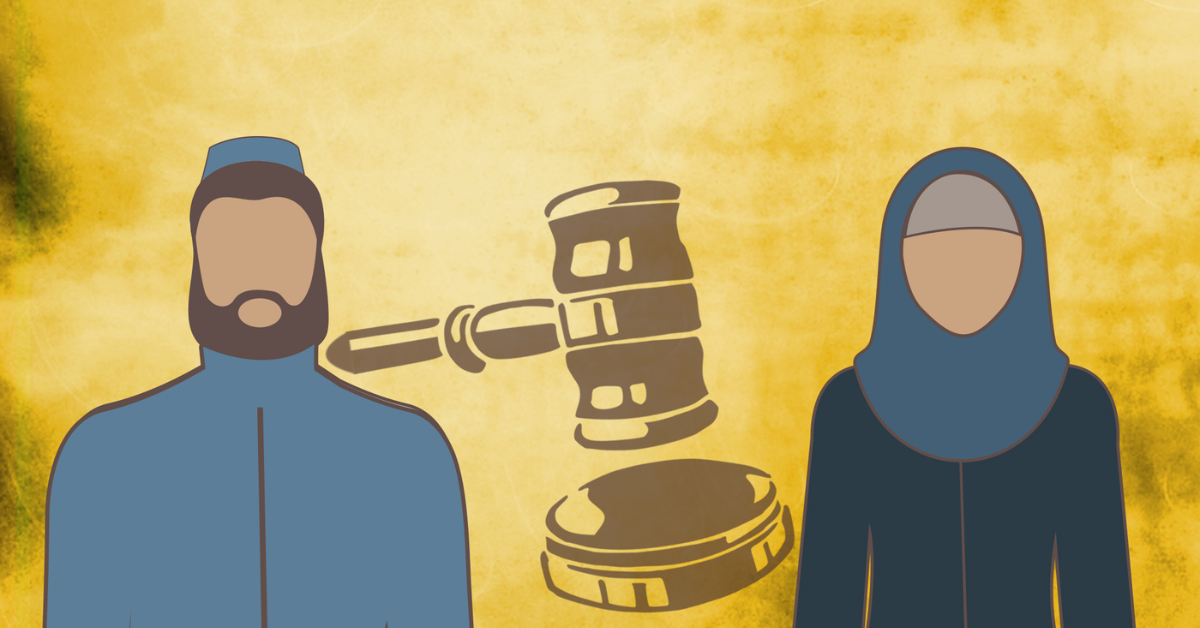Triple Talaq, also known as Talaq-e-Biddat, has been one of the most debated issues concerning Muslim personal law in India. It allowed a Muslim man to divorce his wife instantly by uttering “Talaq” three times in one sitting, often without any legal or social consequences.
However, this practice was widely criticized as arbitrary and unfair to Muslim women, leading to a historic legal battle that culminated in the Supreme Court of India striking down Triple Talaq as unconstitutional in 2017. Following this, the Muslim Women (Protection of Rights on Marriage) Act, 2019, was enacted to criminalize the practice.
In this blog, we will explore the origins of Triple Talaq, the Supreme Court’s ruling, the 2019 Act, and its implications for Muslim women’s rights in India.
What is Triple Talaq?
Triple Talaq, or Talaq-e-Biddat, is a form of instant divorce where a Muslim man can unilaterally end his marriage by saying “Talaq” three times in one sitting—either orally, in writing, or even via electronic communication (such as SMS, email, or WhatsApp).
Types of Talaq in Islamic Law
Islamic divorce laws recognize three main types of Talaq:
- Talaq-e-Ahsan: A revocable divorce where the husband pronounces Talaq once during the wife’s purity (without intercourse) and observes a waiting period (iddat). If the couple reconciles within this period, the divorce is void.
- Talaq-e-Hasan: Talaq is pronounced three times over three months, with chances for reconciliation in between.
- Talaq-e-Biddat (Triple Talaq): The instant and irrevocable form, where divorce is final upon three pronouncements made in one sitting.
Among these, Talaq-e-Biddat was considered un-Islamic by many scholars and banned in several Islamic countries before India took action against it.
Legal Battle Against Triple Talaq in India
The movement against Triple Talaq gained momentum with several petitions filed by affected Muslim women who faced arbitrary divorces. The Supreme Court took up the issue in the case of Shayara Bano vs. Union of India (2017).
Shayara Bano Case (2017)
Shayara Bano, a woman from Uttarakhand, was divorced through Triple Talaq in 2016. She challenged the practice in the Supreme Court, arguing that it violated Articles 14 (Right to Equality), 15 (Prohibition of Discrimination), and 21 (Right to Life and Dignity) of the Indian Constitution.
The case was heard by a five-judge Constitution Bench. In a 3:2 majority judgment, the Supreme Court declared Triple Talaq unconstitutional and set aside the practice, stating that it was against fundamental rights and had no legal standing in Islamic law.
Key points from the judgment:
- Triple Talaq has no Quranic basis and is not essential to Islamic faith.
- The practice is arbitrary, discriminatory, and unconstitutional.
- Triple Talaq violates women’s fundamental rights under the Indian Constitution.
- The government should pass a law regulating Muslim divorce practices.
This landmark ruling paved the way for legislative intervention.
The Muslim Women (Protection of Rights on Marriage) Act, 2019
Following the Supreme Court’s decision, the Indian government introduced the Muslim Women (Protection of Rights on Marriage) Act, 2019, commonly known as the Triple Talaq Act.
Key Features of the Act
- Triple Talaq is illegal and void
- Any pronouncement of instant Talaq is null and has no legal effect. The marriage remains valid.
- Triple Talaq is a criminal offense
- A husband who pronounces Triple Talaq can face imprisonment of up to 3 years along with a fine.
- Cognizable and non-bailable offense
- Triple Talaq is considered a cognizable offense, meaning police can arrest the husband without a warrant. However, bail can be granted by a magistrate after hearing the woman’s side.
- Wife’s right to maintenance
- The wife is entitled to maintenance (subsistence allowance) from the husband for herself and dependent children.
- Custody of children
- The mother gets custody of minor children from the marriage.
- Complaint can be filed only by the woman or her blood relatives
- Third-party complaints (like neighbors or activists) are not allowed to prevent misuse of the law.
Impact of the Triple Talaq Ban
The abolition of Triple Talaq has had significant legal and social implications:
1. Empowerment of Muslim Women
- Women are now legally protected against arbitrary divorce and destitution.
- They have legal remedies for maintenance and custody rights.
2. End of Instant Divorces
- Husbands can no longer end marriages unilaterally without due process.
- The practice of instant Talaq via WhatsApp, phone calls, or messages is legally invalid.
3. Legal Certainty in Muslim Marriages
- Marriages are more secure, and couples must now follow proper divorce procedures as per Islamic law.
4. Criticism of Criminalization
- Some Islamic scholars and organizations opposed criminalization, arguing that divorce should be a civil matter, not a criminal offense.
- Critics argue that sending husbands to jail might affect the financial stability of Muslim families.
Challenges and Future Considerations
1. Social Awareness and Implementation
- Many women in rural areas are unaware of their rights under the Triple Talaq Act.
- Government and NGOs need to spread awareness among Muslim women about the law.
2. Religious Opposition and Political Debate
- Some religious leaders argue that the government should not interfere in Muslim personal law.
- However, the Supreme Court has upheld the law as necessary for gender justice.
3. Addressing Other Forms of Unjust Divorce
- While Triple Talaq is banned, issues like halala (remarrying another man before returning to the first husband) and polygamy still exist.
- Further legal reforms may be required to ensure equality in Muslim personal laws.
Conclusion
The Supreme Court’s verdict and the Triple Talaq Act, 2019, marked a historic step towards gender justice and women’s rights in India. By criminalizing Talaq-e-Biddat, the law ensures that Muslim women are not arbitrarily abandoned and left without financial or legal support.
While the law is a positive step, challenges remain in terms of implementation and awareness. Strengthening education, legal aid, and women’s empowerment initiatives can help ensure the long-term success of this legal reform.
With the abolition of Triple Talaq, India has taken a firm stand on protecting the constitutional rights of Muslim women and ensuring justice in marriage and divorce laws.

